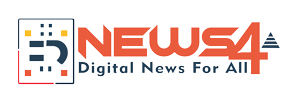The metaverse is no longer just science fiction—it’s rapidly evolving into a digital frontier with the potential to reshape the way we work, play, socialize, and, most importantly, engage in economic activity. As tech giants like Meta, Microsoft, and Apple continue to invest heavily in virtual and augmented reality, one question looms large: Will the metaverse create a new digital economy?
Defining the Metaverse
At its core, the metaverse is a persistent, immersive digital space where users can interact in real time through avatars, digital assets, and shared experiences. Think of it as the next evolution of the internet—more visual, more interactive, and layered with real economic potential.
Several early indicators suggest that the metaverse is already laying the foundation for a new digital economy:
- Virtual Real Estate: Platforms like Decentraland and The Sandbox have seen millions spent on virtual land, with brands like Adidas and Gucci acquiring their own plots.
- Digital Goods & NFTs: From wearables for avatars to digital artwork, the buying and selling of non-fungible tokens (NFTs) has exploded, creating new revenue streams for creators.
- Play-to-Earn Gaming: Games like Axie Infinity introduced a model where players can earn real income through gameplay, blurring the line between work and leisure.
- Virtual Services: Just like in the real world, the metaverse is expected to have architects, designers, event planners, and developers—all offering services for digital spaces.
Key Drivers of the Metaverse Economy
- Digital Ownership: Blockchain technology enables secure, transparent ownership of digital assets, making virtual property and items truly valuable.
- Creator Empowerment: The metaverse puts power in the hands of creators, allowing them to monetize content, experiences, and even social interactions.
- Decentralization: Decentralized platforms are shifting control away from large corporations, giving users more freedom and ownership.
- New Job Markets: As digital spaces grow, so does demand for new roles—metaverse developers, community managers, virtual fashion designers, and more.
Challenges and Open Questions
While the potential is massive, the digital economy of the metaverse isn’t without hurdles:
- Regulatory Uncertainty: Governments are still grappling with how to regulate virtual economies, especially when it comes to taxation and intellectual property.
- Accessibility & Inclusion: High-end VR gear and fast internet connections aren’t universally accessible, potentially excluding large segments of the population.
- Monopoly Concerns: If dominated by a few tech giants, the metaverse could replicate the centralization problems of today’s internet.
Conclusion
The metaverse is still in its infancy, but the groundwork for a new digital economy is clearly being laid. It may not replace traditional economies, but it will certainly augment and evolve them, introducing novel forms of value exchange, work, and digital ownership.
Whether you’re a gamer, entrepreneur, developer, or investor, now is the time to start thinking about how your place in the economy might shift—because the metaverse is coming, and it’s bringing a whole new economy with it.


